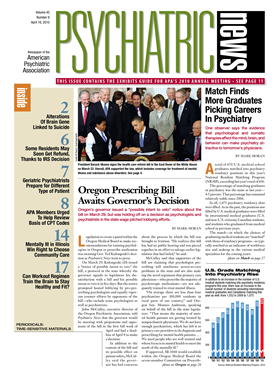The Internal Revenue Service (IRS) has agreed to return Social Security and Medicare taxes collected from residents and teaching hospitals that filed claims prior to April 1, 2005.
The decision was welcomed by the Association of American Medical Colleges (AAMC), but litigation is continuing about refund claims filed after that date.
In a March 2 statement on the IRS Web site regarding the claims filed prior to April 1, 2005, the federal agency stated that it “will, within 90 days, begin contacting hospitals, universities, and medical residents who filed FICA (Social Security and Medicare tax) refund claims for these periods with more information and procedures. Employers and individuals with pending claims do not need to take any action at this time.”
(FICA stands for Federal Insurance Contributions Act, under which taxes are collected to fund the Social Security and Medicare programs.)
The administrative ruling by the IRS exempting residents and teaching hospitals from the FICA tax prior to April 1, 2005, was issued after several years of litigation. On April 1, 2005, a new IRS ruling went into effect stating that individuals who work 40 hours a week or more for a school, college, or university are not eligible for the student exemption.
The AAMC, in a statement issued following the new administrative ruling, applauded the IRS decision.
“The AAMC is pleased that, after years of litigation on this issue, the IRS has exempted residents from paying FICA taxes for time spent in their residency programs prior to April 2005, when new IRS regulations were put into place,” AAMC President Darrell Kirch, M.D., said in the statement. “The return of these funds will no doubt be welcomed by new physicians, as well as by U.S. teaching hospitals with pending claims before the IRS.”
The AAMC has also challenged the IRS ruling that went into effect April 1, 2005, and has filed a friend-of-the-court brief in support of the University of Minnesota and the Mayo Foundation in their request to the U.S. Supreme Court to hear the case Mayo Foundation for Medical Education and Research and the Regents of the University of Minnesota v. United States.
That case challenges the 2005 IRS ruling, asserting that the original FICA governing statute exempts students from FICA taxes and indicates that student status—as opposed to employee status—be determined by the facts and circumstances of each institution.
“The AAMC has always strongly believed that residents are students and that their relationship with U.S. teaching hospitals is educational,” Kirch said. “We hope that the Court will agree to hear this important case and provide the opportunity to demonstrate that residents are first and foremost learners, honing their professional skills so they can advance patient care.”
